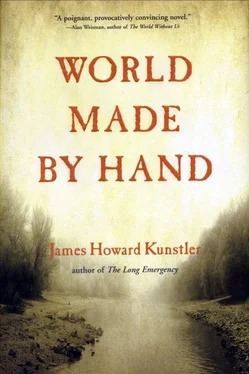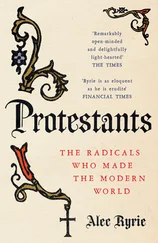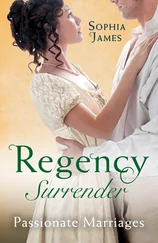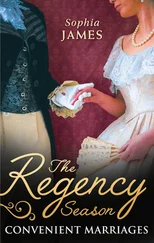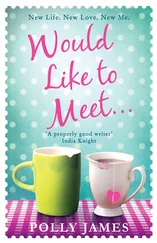“We’re more into the practical side of things,” Joseph said.
“Sure, whatever that is. Maybe one of these gods will have mercy on me and send a hundred yards of four-hundred-count cotton moleskin and another hundred each of calico, gingham, muslin, buckram, and voile. Now what can I do for you gentlemen at this late hour on a such a dismal night?”
I explained that we were looking for a particular boat, the bateau Elizabeth, a twenty-five-foot-long rowing packet with a single gaff-rigged sail, and her crew of four, and how she belonged to the planter Stephen Bullock of Union Grove, forty miles north. Ricketts said he had traded with Bullock now and then, though he hadn’t seen the boat or its crew recently or heard anything about them. But, he added, the new scarcity of goods had induced a lot of desperate behavior up and down the river, and he was not confident that things could move around safely nowadays, which only made him despair again for his business. I didn’t want to bother him further, except to ask for someplace we might put up for the night, and he said Slavin’s Hotel at the south end of Commercial Row.
Slavin’s was a ramshackle structure cobbled up against a trestle of the old elevated freeway running to Clinton and Pearl Street. A lightning flash lit it up in its stark fullness. Ironically, it was a stone’s throw from the old Albany train station, still standing and visible in the downpour, a beaux arts period Greco-Roman temple that had been rescued by preservationists in the 1980s and turned into a bank, and was now an empty, looted hulk in need of rescuing again. Hotel was perhaps a grandiose term for Slavin’s three-story log and clapboard jerry-built eyesore that was more accurately a flophouse for river rats, as boatmen were called, with a tavern on the ground floor that served pretty good food, Ricketts had said, when the cook was not drunk.
The tavern room in Slavin’s was a lively scene in contrast to the desolation of the streets and wharves outside. Whatever its other shortcomings, the management was liberal with the candles. The rain had driven the denizens of the waterfront inside that night, rough boatmen, wranglers, dockmen, plus half a dozen bar girls who were “friendly and available,” we were told. Some card games were in progress. Smoke wreathed the ceiling beams, both cannabis and some real tobacco. A wan youth about fifteen played tunes on a small accordion while a younger female child-his sister? -performed a loose-limbed clog dance beside him. Both seemed to be drunk. The aroma of things cooked in butter wafted from the pass-through window to the kitchen behind the bar. It put a keen edge on my hunger. With rain dripping off the eaves and thunder crashing outside, even this squalid scene was a relief.
The barkeeper, a keg-shaped man about forty with close-cut black hair and a Vandyke beard, a damp bar towel over his shoul der and a stained apron on, introduced himself with a kind of distracted patter: “I’m Henry Slavin and this is my place and you can apply to me a drink, a meal, a bed, a chippie, or any combination, what’ll it be, boys?”
We asked first for someplace to stable our animals and he said they maintained a boarding barn on the other side of the trestle. It was “self-serve.” They couldn’t afford to keep a man out there and couldn’t vouch for security and suggested that some member of our party might put up in there with the animals. The diligent Brother Minor volunteered if we would bring him something to eat and a bottle of anything potable. So we helped Minor get the tack off and settle the animals. The stalls lacked fresh bedding and Minor took it upon himself to rake them out, since the management didn’t. Elam tossed down a bale of stalky hay from the lofts above.
We couldn’t turn up any oats or other grain. But to our surprise there was a faucet on an iron pipe with running water, and when we returned to the tavern, Slavin explained that the “boss” of the city, or what remained of the city, Mr. Dan Curry, had installed a waterworks the previous year near the old Rensselaer Bridge ramp, with a great undershot wheel that used the river current itself to lift water to Commercial Row and a few streets beyond. Curry was regarded as a hero because of it. It had required the digging of a half-acre reservoir pond on what had historically been Cornelius Place. They hoped someday to resume water service “up the hill” to the former heart of the city, Center Square, now largely uninhabited, and the area around the capitol, but that day was still somewhat over the horizon. Curry also ran a fire department, policed the docks, operated the justice court, deported “pickers” (vagabonds) downriver, and collected substantial taxes in connection with these ventures. For practical purposes, he was mayor, but disdained the title, Slavin said. Brother Elam volunteered that Slavin was talking to the new mayor of Union Grove, up in Washington County. Joseph told Elam to shut up. Slavin cocked a knowing grin at me and said, “I hope you’re thriving, sir, like our Mr. Curry is.”
“It’s not a paid position,” I said.
“Neither is Mr. Curry’s,” Slavin said with a wink. “But he manages pretty smartly all the same. Now, how do you boys propose to pay for your rooms and meals? Paper dollars or real money?”
“Silver coin good enough?” Joseph said.
“We take that here. Two bits each, bed and a meal. One dollar for the horses. Drinks are extra, of course.”
Joseph took out a leather drawstring purse and dropped a handful of old quarters and half-dollars on the wooden bar, where they rang musically. Slavin looked impressed. Whatever the other failures of the U.S. government were, it had managed to print an excess of dollars which, combined with the collapse of trade and communication, had severely eroded the currency’s value. People always liked silver better, if it was offered. Gold, on the other hand, was rarely seen. People tended to hoard it.
In a little while, Slavin’s kitchen produced a chowder that he said was made from a locally caught sturgeon “the size of a Nile crocodile,” stewed with plenty of butter and cream, green onions, and firm new potatoes. The portions were substantial, befitting a place that served hardworking men. We sent Seth out with a crock of the stuff to Minor in the stable, along with several slabs of buttered corn bread, a big hunk of what they called Duanesberg cheddar, and a quart bottle of pale ale Slavin swore he brewed himself.
We asked Slavin if he’d heard anything of the Elizabeth and its crew. He snorted saying boats were coming and going all the time and he had no idea, but I might inquire in the morning at Dan Curry’s office at the waterworks; his people seemed to track every last corncob that passed in and out of the port.
Finally, we were advised to “double up,” two to a bed because the other rooms were let out to the girls quarter-hourly, and by the way, Slavin said, were we interested in some of that action, for an additional two bits each? We declined. Joseph and I paired up, and Seth and Elam together, and soon we went to the rooms above.
Joseph and I lay side by side on a rank mattress in the close dank room. I had been ruminating sleeplessly about the young widow and child whom I had perhaps rashly agreed to let move into my house, worrying what people would think, worrying about her getting into my things, worrying about being so far from home, just worrying, anxious in the storm-lashed darkness.
“You awake?” I said. Joseph’s breathing had not seemed the regular pattern of a man asleep. The rain had not even succeeded in cooling off the jungly night air.
“Yessir, I am,” Joseph said.
“Do you remember air-conditioning?”
Читать дальше
